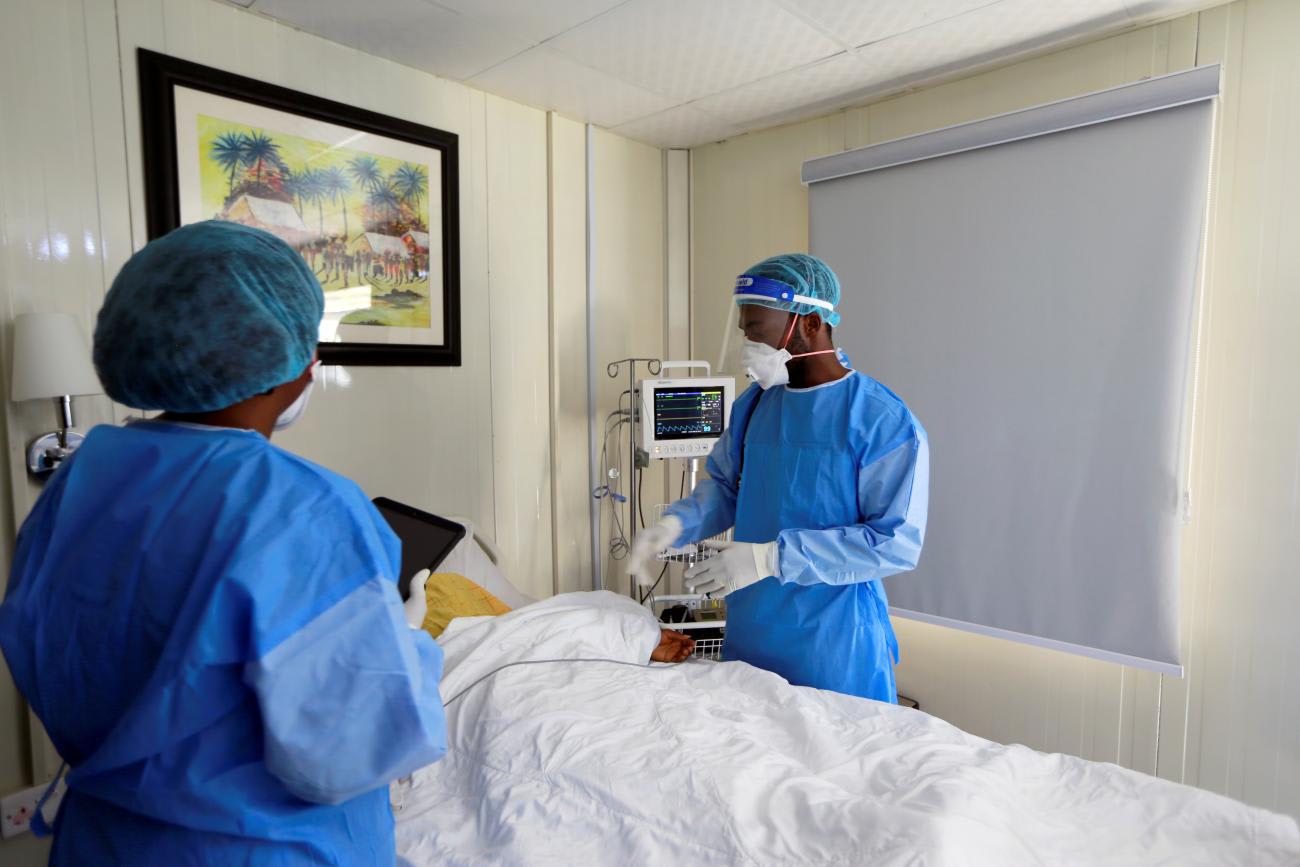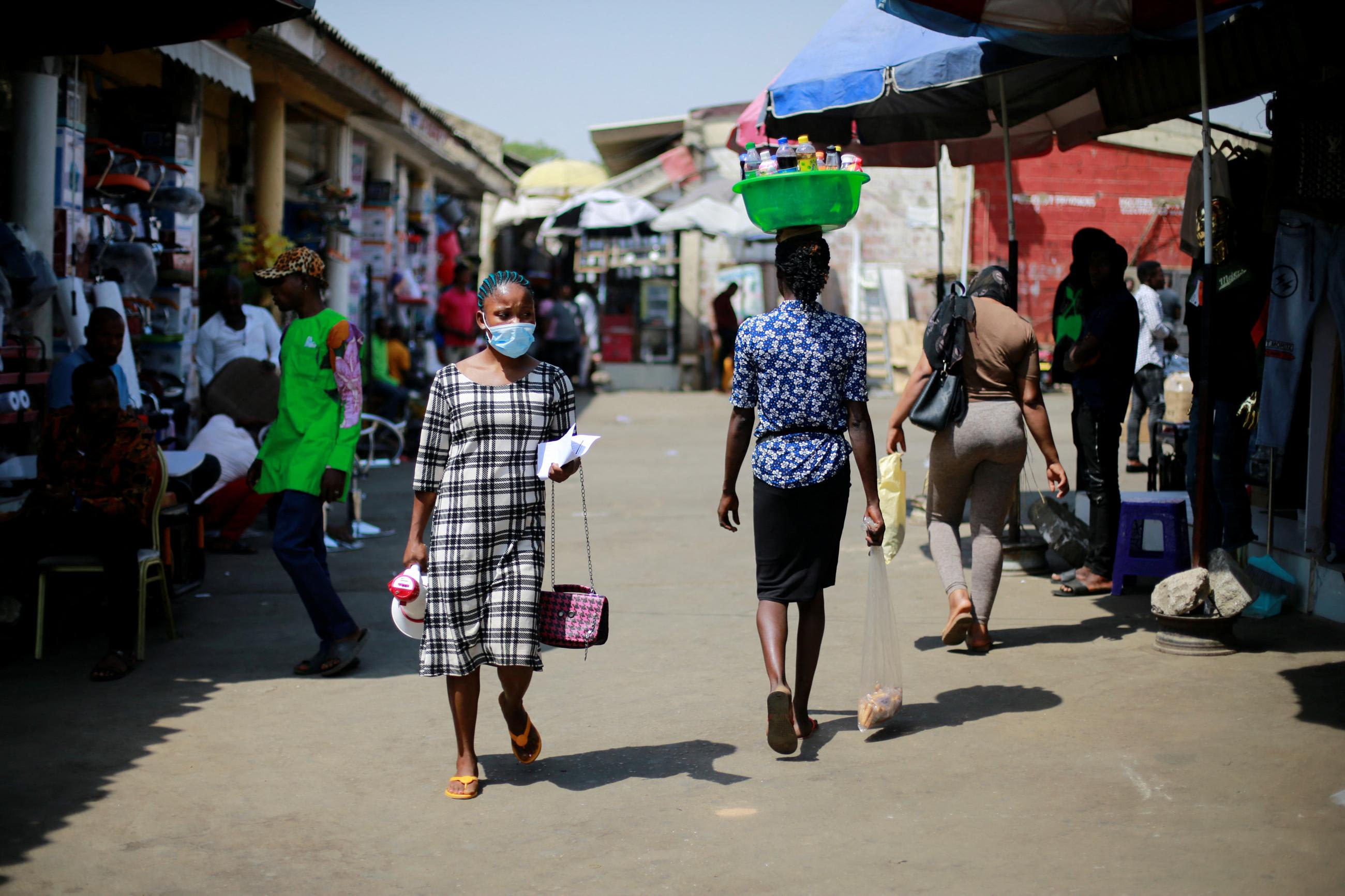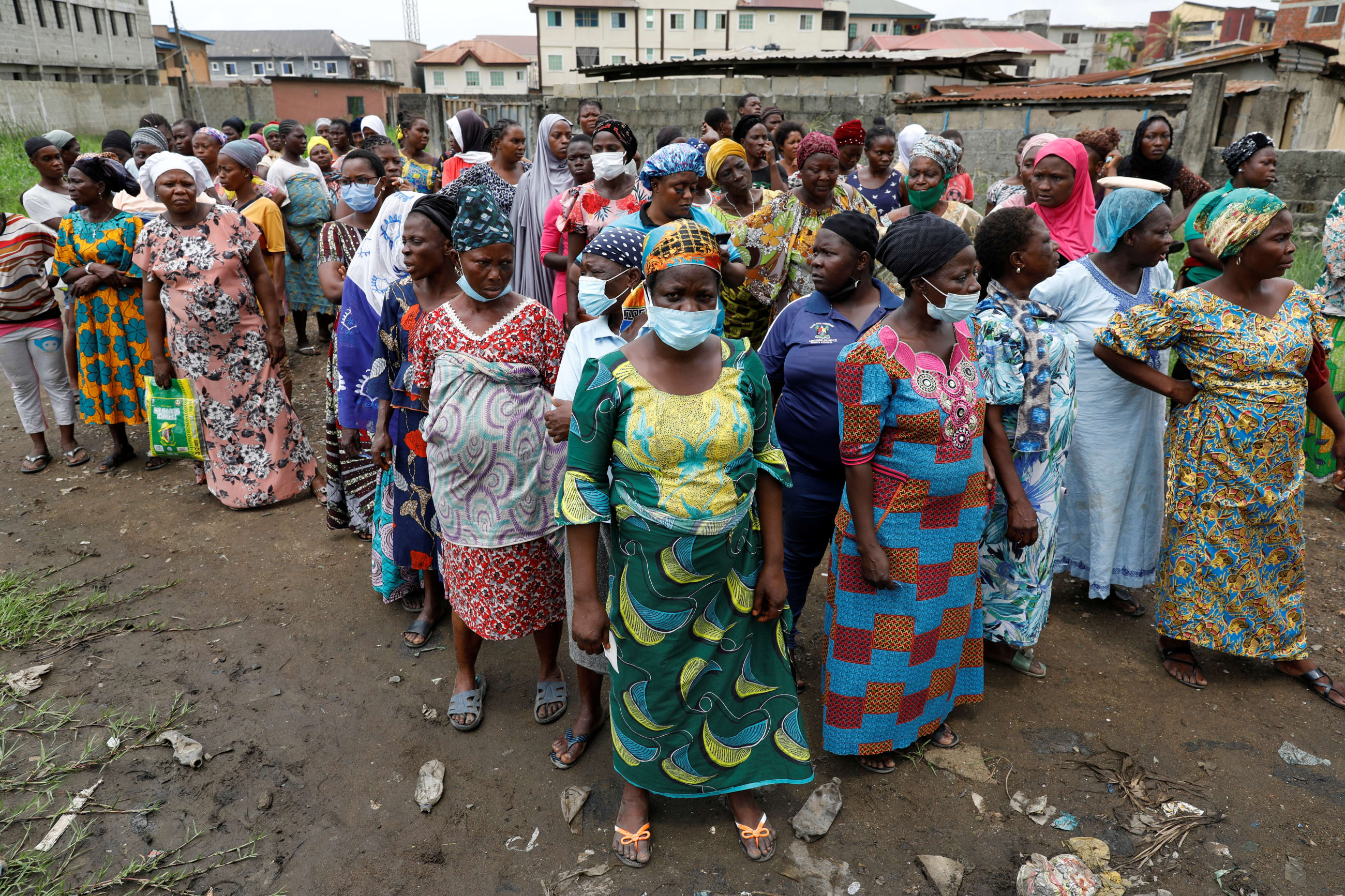Ibrahim Abubakar, the pro-provost for health at University College London, feels that the world's greatest public health challenges can be resolved with a dynamic mix of multidisciplinary collaboration, translation of research findings into policy, and a keen awareness of how inequalities drive health disparities.
His research has inspired new international working groups on climate change and pandemic preparedness. His studies on global migration helped launch the United Nations Global Compact on Migration, the first intergovernmental agreement that seeks to find a common approach to managing international migration.
His work has also led to policy changes, including guidelines for the treatment of latent tuberculosis and the commissioning of mobile screening for tuberculosis in the United Kingdom and Romania. In 2022, under the Lancet Nigeria Commission, Abubakar led a group of researchers who investigated the health and future of Africa's most populous country. Their findings directly led to the passing of a new law in Nigeria that provides basic universal health insurance to 83 million vulnerable citizens.
In 2023, Abubakar received the prestigious Roux Prize, which recognizes individuals who have used evidence-based data to improve population health, for his work over the last three decades to improve global health outcomes. Think Global Health interviewed Abubakar about a few of these efforts—and about how he remains optimistic in spite of the many obstacles facing the world today.
□ □ □ □ □ □ □ □ □ □ □ □ □ □ □
Think Global Health: The Lancet described you as "a global health diplomat." What does that mean to you?
Ibrahim Abubakar: The best way to get people to do what is right is to get them to agree. Diplomacy is about using the positive aspects of differences to work together. I enjoy the fact that a lot of my work allows me to get people from different continents, countries, and cultures to work collaboratively.
Think Global Health: How did you find your way to population health sciences?
Ibrahim Abubakar: I grew up in northern Nigeria, and my interest in medicine came from observing, from a very early age, the great disparities in medical outcomes in the society I lived in.
People who don't have access to health care often die needlessly. In fact, when I was a very young child, I unfortunately lost my dad. I was too young at the time to know the reason, but much later in life, the chief medical director of the university hospital where he died became a friend of mine.
So I managed to dig up my dad's hospital records from the 1970s, but even though they did an autopsy, the records didn't provide the clinical detail to decipher what had happened. Based on those notes, it seems as if it was either a traumatic head injury or a stroke—we couldn't decide which.
"The best way to get people to do what is right is to get them to agree"
Ibrahim Abubakar
Either way, though, if the health system had operated well, it probably could have made a difference in saving his life. That partly motivated me to ask, could I contribute to making the health and lives of people around me better?
I originally trained in medicine and took an interest in general internal medicine and infectious disease medicine. I continued to notice great disparities in people's health outcomes, though, which made me realize that—in addition to clinical training—I needed to look at health in a different way. I found my way to a master's training program in public health and infectious disease epidemiology at the London School of Hygiene and Tropical Medicine and then undertook further training in public health at the University of Cambridge and in epidemiology the Norwich Medical School.
Building on my clinical experience in medicine, this training gave me the disciplinary expertise to more effectively tackle challenges in biomedicine and the wider determinants of health and inequalities.
Now, in my day job as the pro-provost for health at University College London, I am lucky to be responsible for leading the strategy at a top-ten global university in answering important questions related to public and population health in terms of both science and policy.

Think Global Health: What are some of the multidisciplinary approaches that you and your colleagues are taking to solving some of the world's most pressing health challenges?
Ibrahim Abubakar: We find solutions that are tractable and cost effective for addressing inequalities issues, including anthropogenic climate change and its consequence on health. We also work on more preventive elements, including reducing carbon emissions produced by the health-care sector itself. Many health systems, including our National Health Service in England, are becoming carbon neutral.
Think Global Health: I'd never considered carbon emissions from the health-care sector before. What are some strategies for reducing those emissions?
Ibrahim Abubakar: There's a whole list. One simple thing is for laboratories that use refrigerators to store samples at the most efficient temperature while not risking the viability of the products. If everybody adjusted their refrigerator temperatures by a few degrees, that could mean a huge reduction in emissions.
Think Global Health: You wear a number of other hats in addition to your day job.
Ibrahim Abubakar: With The Lancet, I've been able to work with groups of experts to produce reports on specific issues that have influenced policy nationally as well as globally. For example, I led a report on the health system in Nigeria, which resulted in a significant legislative change by creating what policymakers call a "vulnerable group fund" to offer health insurance to the poorest Nigerians. I'm delighted that the current government is continuing to implement that.
Between 2016 and 2018, my colleagues and I also came up with answers that challenged myths about the global migration of people from lower-income countries to higher-income ones. We did a comprehensive review of existing evidence for each of the myths we encountered to see whether the data supported the assertions people were making.
We found that political leaders were making statements that really could not be backed up by any evidence, including that migrants consume an outsized proportion of resources for things such as health care. In fact, for the vast majority of cases, we found that migrants contribute more economically than they consume because they tend to be younger, active members of the population.
Subsequently, I helped set up an initiative called Lancet Migration. It has hubs in different world regions and does more granular-level research and engagement with policymakers to get our evidenced-based recommendations into national policy.
We want to create a win-win situation for migrants and the hosting population. Our species has always migrated, and we always will, so it's in the everyone's interest that we get things right.
Our species has always migrated, and we always will, so it's in the everyone's interest that we get things right
Think Global Health: More recently, you've also gotten involved in pandemic-related research, policy, and preparedness. Can you tell me about some of that work?
Ibrahim Abubakar: I'm a member of the Global Preparedness Monitoring Board, a group of multidisciplinary, leading world experts that the World Bank and the World Health Organization convened. We set up a system that generates a framework and subsequent metrics that allow us to review the state of the world's preparedness for pandemics annually. We make recommendations as to how individual countries and systems that cross individual countries should respond in the future. We take a broad lens, covering issues from the ability of health systems to manufacture products, medicines, and diagnostics to levels of trust in society in things like vaccines.
Think Global Health: What do you see as major missteps from the last pandemic, and how can we use those lessons to improve our response next time?
Ibrahim Abubakar: The biggest problem that comes to my mind when you ask that question is how quickly we are losing the wins. There were a lot of gains during the pandemic because the whole of society turned its attention to the issue. The key examples are the increased availability globally of molecular diagnostics, including in many low- and middle-income countries, to test for COVID-19. In many settings, agreements to start negotiation on a pandemic accord began, too, though this is now at risk. The initial commitment to finance preparedness and response, including research and development, has faltered.
Unfortunately—and I think it's a natural human reaction—we want to forget awful memories. Almost every society has chosen to move on because it's not great to keep talking about a traumatic issue. The consequence is that the world is almost certainly less prepared than it was previously, including in society's level of trust and the amount of global cooperation needed to get us ready for the next pandemic.
Think Global Health: Do you see any hope of that changing?
Ibrahim Abubakar: I remain the eternal optimist. I think it is within our grasp. Our species is highly adaptable. Throughout human history, when we have been challenged, we have risen to the task of inventing solutions. One case in point is pivoting from the absence of a vaccine to a new disease, COVID-19, to using multiple technologies to discovery multiple effective vaccines. Although I would not hesitate to say we need more funding and more preparation for the next pandemic, I'm also optimistic that we will do what we have to when the time is here.
Think Global Health: Is it a source of frustration for you that humanity tends to wait until things such as climate change, disease outbreaks, or immigration reach a point of crisis before we take serious steps to respond?
Ibrahim Abubakar: Yes, it is. The consequence of that approach is that in the early phase, before you develop solutions, many, many preventable deaths occur. That happened with COVID. I lost lots of friends and people I cared deeplyabout—we all did. I'd much prefer that we do the work and investment needed now so that we are ready when the next one comes, so that we can prevent unnecessary suffering and loss of life.
Think Global Health: I'm pretty sure I know your answer to this question, but do you think scientists have a responsibility to do more than just produce research results? Do they have a responsibility to try to drive change outside their labs?
Ibrahim Abubakar: I'm a passionate believer that evidence is useful only if you contribute to translating it into policy and implementation. Of course, every country with the means does need to do some basic science discovery research. Ultimately, the majority of research should be about how we translate evidence into impact.

EDITOR'S NOTE: This interview has been edited for length and clarity.












